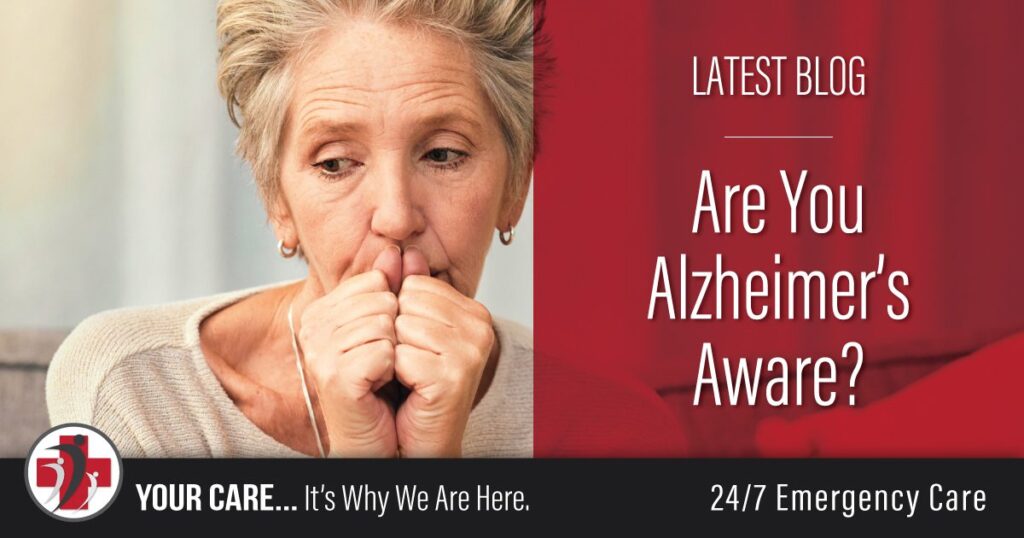We didn’t want to let June close out before calling attention to a very important issue that is nationally recognized this month every year. June is Alzheimer’s and Brain Awareness Month, and these issues deserve a month of recognition. Alzheimer’s reach is, sadly, steadily growing. In 2020 it was estimated that 5.8 million Americans were living with Alzheimer’s Disease. In 2023, it’s estimated that 6.7 million adults in the US are living with this disease. As the number of older Americans continues to increase each year, so does the number of people with diagnosed Alzheimer’s Disease.
The cause of Alzheimer’s is complex and is still largely unknown. One key component to an Alzheimer’s diagnosis involves a buildup of proteins in the brain called amyloid and tau. The development and tangling of these proteins cause the brain to work less efficiently.
Protein buildup aside, there are several factors that can increase one’s risk of developing Alzheimer’s. They are:
Age
Age is the greatest risk factor for developing this disease. Most individuals who experience this disease are 65 years of age and older, with the risk doubling every 5 years of age progression.
Genetics, kind of
Alzheimer’s disease has been found in risk genes (those that increase someone’s risk of developing the disease) and deterministic genes (those that ensure someone will get the disease). However, genetics don’t play the strongest role in developing Alzheimer’s. And it’s widely believed that there’s not a single genetic component that causes a diagnosis, but rather someone’s likelihood is influenced by environmental factors, lifestyle, and contributions from many different genes.
Race
While the reason for this discrepancy is not yet understood, studies show that Latinos and African-Americans are more likely to develop Alzheimer’s that white adults.
So what can you do?
If you’re interested in doing all you can to prevent this debilitating disease, we have a few things you can start doing right away to make sure your brain is as healthy as it can be.
-
Protect your head
There is shown to be a strong correlation between head trauma and developing Alzheimer’s in the future. You can protect your head by minimizing your fall risk, wearing a helmet during biking and other applicable sports, and wearing a seatbelt when in a vehicle.
-
Move well and eat well
Did you need yet ANOTHER reason to exercise and eat healthfully? It’s believed that exercise benefits the brain by increasing and improving blood and oxygen flow to the brain. And as far as diet, there are two specific eating plans that appear to help prevent Alzheimer’s.
- The DASH (Dietary Approaches to Stop Hypertension) diet limits salt and added sugar, and emphasizes produce, whole grains, lean meat, seeds and nuts.
- The Mediterranean diet is low-meat, and incorporates fish, olives, seeds, vegetables, and other healthy fats
-
Be social
It turns out that the teenagers are right – spending time with friends really is good for you! Research shows that maintaining and enjoying strong social connections can likely lower your risk for cognitive decline.
If you’d like more information on brain health, our medical can help. We can advise you on how to adopt a healthier eating plan, how to incorporate more exercise into your daily life, and can answer all your questions about dementia and Alzheimer’s. And if you or a loved one is already experiencing symptoms of Alzheimer’s, we can provide support, testing, and more. We’re here for all of your concerns, worries, and triumphs, and encourage you to give us a call and get to know us better.

